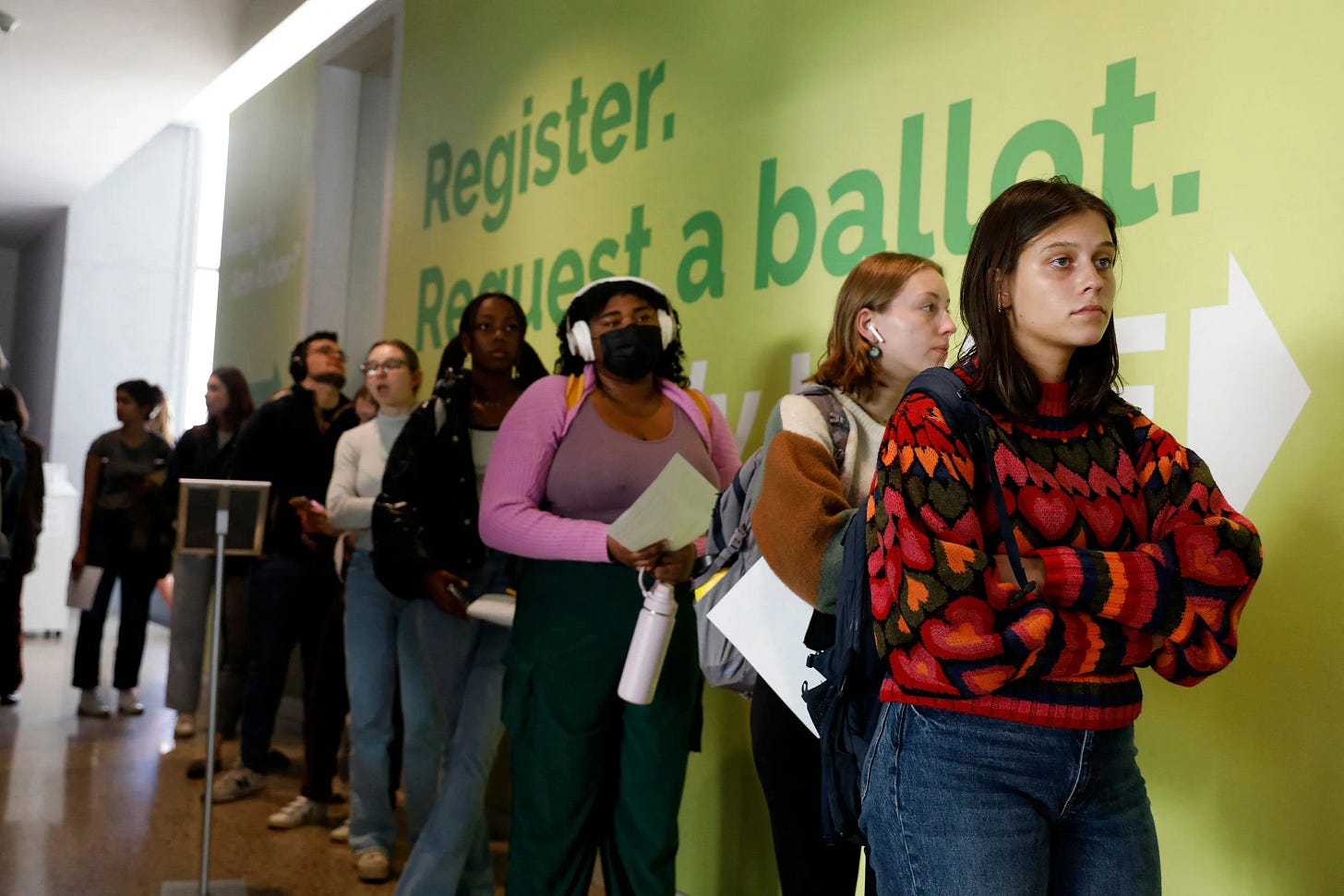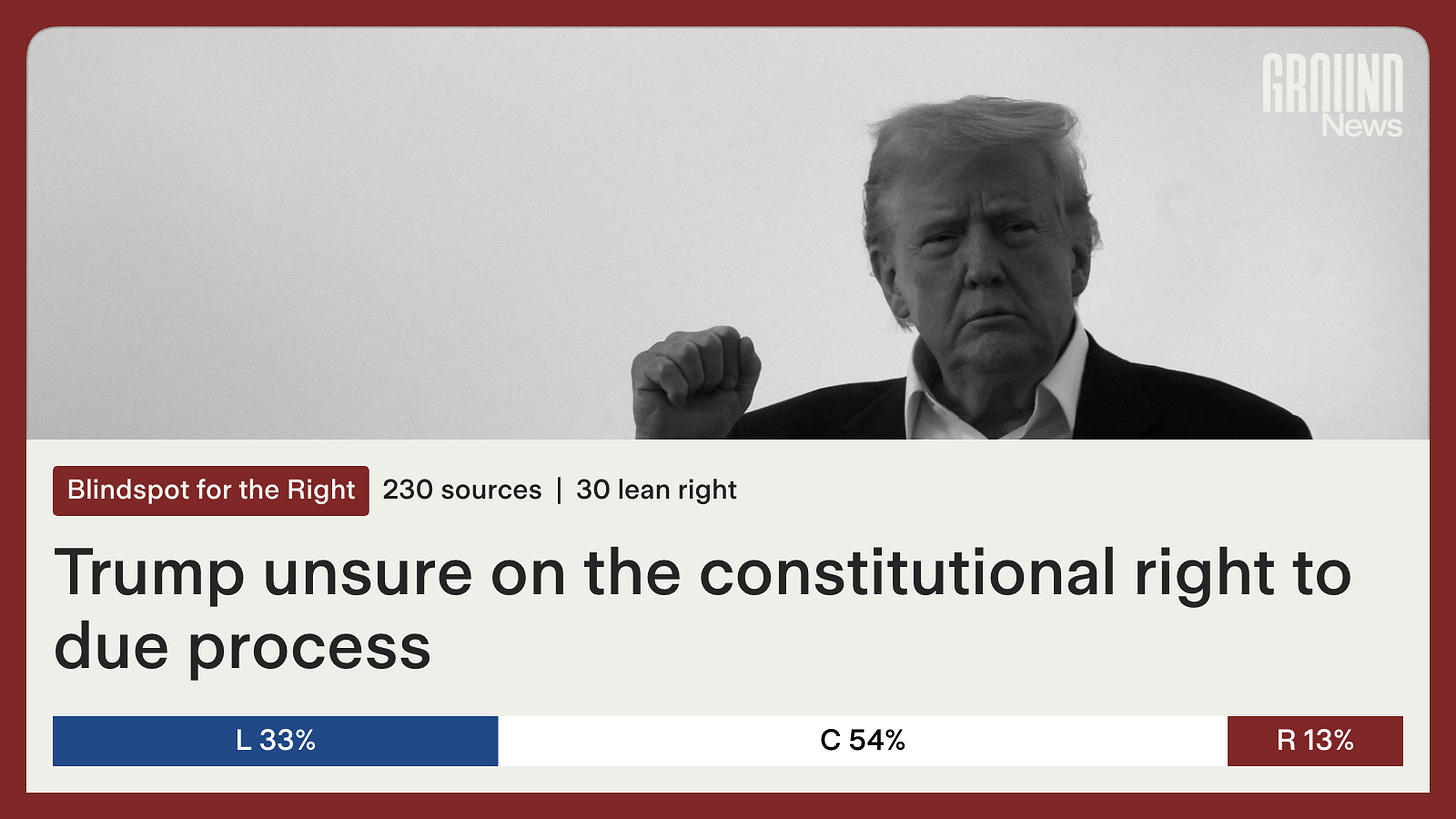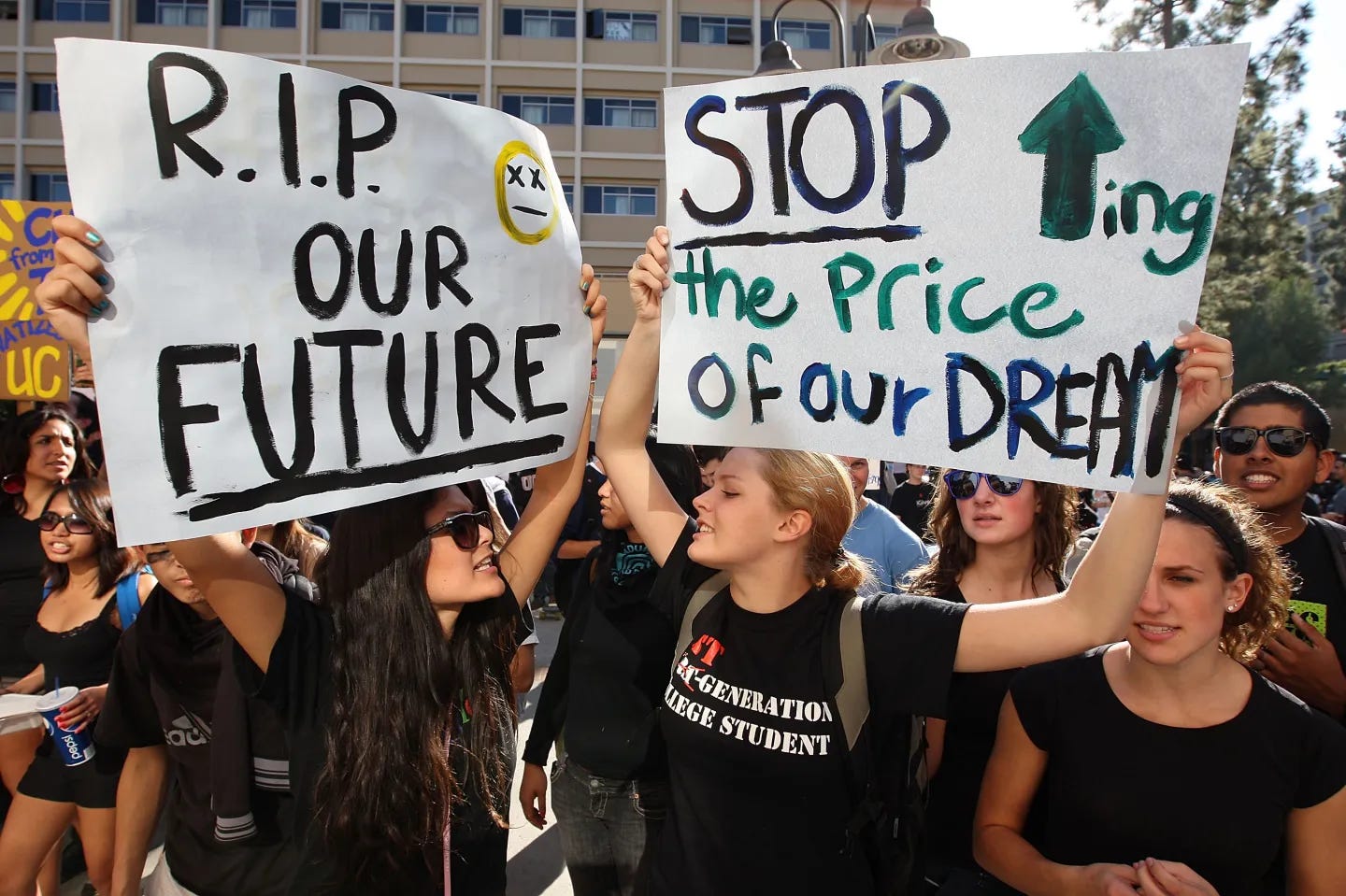A Crisis of Faith. And Not the Religious Kind.
What happens when an entire generation loses faith in democracy?
Together with:
"Whenever I have trust in an institution, it hurts me."
That bleak confession from a jaded high school student in Arizona may sound like teenage angst. It’s not. It’s a warning siren — one that echoes across an entire generation.
Young Americans have lost faith in the system. Not just in politicians or a particular party — in democracy itself. And that disillusionment is reaching crisis levels. According to the latest Harvard Youth Poll, a staggering 81% of Americans under 30 say they don’t trust the federal government to do “the right thing” most of the time — the lowest level in the poll’s 25-year history.
This isn’t just a rebellion of youth. This cuts deeper than the standard generational friction every society faces. We saw promising signs of young voter participation in 2020: record high turnout and a seeming increase in generational energy. But in 2024, there was a disappointing downturn —– perhaps a bellwether of what’s to come. According to Tufts University’s Center for Information and Research on Civic Learning and Engagement (CIRCLE), youth voter participation in the most recent presidential contest dropped from 50% to 47%.
But voting is just the tip of the iceberg. Beneath the surface lies something more corrosive: a broad and growing belief that democracy simply doesn’t work.
A joint study by CIRCLE and Protect Democracy found that most young Americans support the ideals of democracy — in theory. But in practice? They’re unconvinced. Their verdict is blunt: “The democracy they are experiencing today cannot solve the nation’s problems and is not working well for their generation.”
Many have opted out. Not out of apathy, but calculation. The system, they believe, isn’t built to fix what matters most — and may not even be trying.
The Brennan Center for Justice doesn't mince words: when citizens stop participating, democracy itself is imperiled. And right now, young Americans are disappearing from public life — not just from the ballot box, but from community organizations, volunteer roles, and public debate.
Economic desperation is fueling democratic disillusionment
Young Americans aren't just politically disconnected — they're broke.
Harvard’s survey found that 40% of Americans under 29 say they are “just getting by.” Wages are flat. Housing costs have exploded. Student debt keeps climbing. Health insurance is unaffordable. And many young people now face financial instability that their parents and grandparents didn’t experience at the same age.
Their cynicism is not unfounded — it’s earned. In poll after poll, young Americans point to a familiar list of unmet needs: housing affordability, healthcare access, mental health care, and crushing student debt. As John Della Volpe, Director of Polling at Harvard’s Institute of Politics, put it: this generation weathered “pandemic isolation during formative years, entered an unstable economy, and faced skyrocketing housing and education costs — all while being told they’re not resilient enough.”
The results are quantifiable. CIRCLE’s data shows that 62% of young non-voters say they struggle to “make ends meet.” When you’re juggling three jobs just to cover rent, civic engagement isn’t a virtue — it’s a luxury.
And when young people feel locked out of the economy, they become easy targets for demagogues who depict democracy itself as the problem. Unlike previous generations, today’s youth are contending with economic pressures that threaten not only their futures — but the very fabric of democratic society.
A generation splintered
There is no monolithic “youth vote.” Within Gen Z, fractures are forming — and the pandemic deepened them.
Journalist Rachel Janfaza, who writes about youth political engagement for the Substack The Up and Up, highlights in an article for Politico what she calls the split between “Gen Z 1.0” and “Gen Z 2.0.” The older cohort, politically awakened during the Trump presidency, came of age amid movements for racial justice and gender equity. The younger cohort entered adolescence in isolation — deprived of proms, graduations, and everyday social rituals, and thrust into a digital world of screens and scrolling.
The result? A more skeptical, less trusting group — one that views traditional authority with suspicion and is increasingly drawn to populist messages promising a return to normalcy.
Jack Dozier, deputy director of the Yale Youth Poll, explains: "The world that my generation started to see developing made ... Republican and populist-leaning policies so much more attractive because they promised a better reality." These younger voters came of age in a digital echo chamber, politically socialized on TikTok and YouTube — exposed to populist influencers who offered not nuance, but certainty.
From Ground News:
If you only read news that leans politically in one direction or the other, you might not be getting the whole story.
That’s exactly why Ground News exists.
It’s an app and website that pulls in coverage from across the political spectrum so you can spot bias, check a source’s credibility, and verify if the narrative’s being controlled by billionaire interests. Depending on where you get your news, this story highlighted by Ground News can allude to Trump rightfully questioning the limits of due process or a blatant warning sign that he’s willing to sidestep the Constitution.
A quick look through their Blindspot Feed shows that many news outlets that claim to be “neutral” actually lean to the right — and that means stories could go underreported, like this one. The Preamble readers can get 40% off Ground News’ unlimited Vantage Plan. Click here or visit ground.news/preamble to subscribe.
The fraying of community
If the political system feels broken, the social one doesn’t fare much better.
Harvard’s data reveals another unsettling truth: young Americans feel profoundly alone. Fewer than half feel they belong in their communities. Only 17% report having deep social connections. And just 48% believe that having children is important — a sharp decline from previous generations.
The pandemic left lasting scars: 31% of young Americans say it permanently damaged their friendships. Many high school and college students who spent critical years in isolation now report higher levels of depression and social anxiety.
That matters — because democracy depends on community. The Brennan Center emphasizes that civic participation is not only a democratic virtue, but a personal good: it’s linked to better mental health, higher education levels, and even increased income. But none of that happens without community. And community, for many young Americans, is exactly what’s missing.
A study from the Institute for Citizens & Scholars paints the picture starkly: one-third of young adults (18-24) have no intention of civic participation. Another third aren’t engaged in any community activities — no volunteering, no clubs, no faith groups. It’s an unprecedented level of detachment, and it risks becoming permanent.
From disengagement to democratic fragility
Here’s the danger: civic disengagement isn’t a phase. It calcifies.
Early patterns of disengagement can harden into lifelong habits — and that America is now experiencing a fundamental erosion of the democratic foundation. When young people don’t participate, politicians stop listening. Youth concerns fall off the agenda. And when no one responds to their needs, young Americans disengage even further. It’s a self-reinforcing cycle.
The consequences aren’t just bureaucratic. According to research from PRRI and The Atlantic, nearly half of young Americans report no civic or political participation in the “real world.” They are certainly engaging with online content, by doing things like resharing posts, subscribing to content creators, and signing internet petitions, but it does not appear to be translating to activism on the ground. In that vacuum, extremism takes root. Disconnected from institutions, lacking trust, and flooded with misinformation, young Americans become vulnerable to anti-democratic ideas — not out of ideology, but desperation.
And while it’s true that most young voters say they reject political violence, a disturbing number of disaffected young people, often those who feel the desperation that includes a lack of economic opportunity or community, become mass shooters or assassins. They walk into their former schools or hunt down a CEO on the street. (Yes, access to high-powered weaponry makes this logistically possible. But what it takes to arrive in that place mentally happens long before a magazine is loaded into a firearm.)
This is not just about political apathy. It’s about whether this country can still hold itself together.
What can be done?
The good news? Young Americans are clear about what would help restore their faith — and none of it requires reinventing the wheel.
Start with economics. Address the real pain points: housing, student debt, and stagnant wages. Civic engagement can't compete with survival. As one young respondent put it: “Don’t tell me to vote if I can’t pay rent.”
Fix civic education. Brookings researchers argue that schools must go beyond memorizing the branches of government. They need to teach civic behaviors and values — and equip students to participate meaningfully. Nearly half of young Americans say their schools failed to do even that.
Stop talking at young people. Start listening. They want to be involved — but not as props or passive recipients. They want dialogue, not lectures. Collaboration, not condescension. As Della Volpe notes: “They’re not asking for much. They’re asking for us to just begin to listen and to engage and to hear them and work collaboratively on some basic solutions.”
This is not about coddling. It’s about survival. For democracy to thrive, it must convince its youngest citizens that they have a stake in it. Right now, many don’t — and the consequences could define the country for decades to come.
Political leaders now face a binary choice: evolve, or watch the next generation quietly walk away from the system they were never fully invited into.









If we don’t engage with our high school students, Charlie Kirk will.
Turning Point USA has already tried to start a chapter at Lee’s Summit North High School.
I asked the chapter President if she knew Charlie Kirk, and she said, “oh, yes, since I was 14.”
That’s why I joined the League of Women Voters, and have registered 17-1/2 year olds at our 5 high schools for the past 3 years.
Engage!
As a working mom of two young kids, I’d like to add my viewpoint from the 30-40 crowd because honestly, we feel the same for similar reasons. We became parents right before or at the beginning of the pandemic so we also feel the stark absence of community. Pair that with the absolute lack of support for parents and we don’t have the capacity to do anything more than engage online in our bubble. How Gen Z feels about rent, we feel about childcare (as well as the cost of housing but at least we had the opportunity to buy before the housing costs went insane). And the administration’s ideas to encourage childbirth is a slap into the face of parents that have been screaming that we need social reform. While it’s scary that a whole generation is already disengaged, these reasons extend to many more and point to the reason why Trump was reelected.